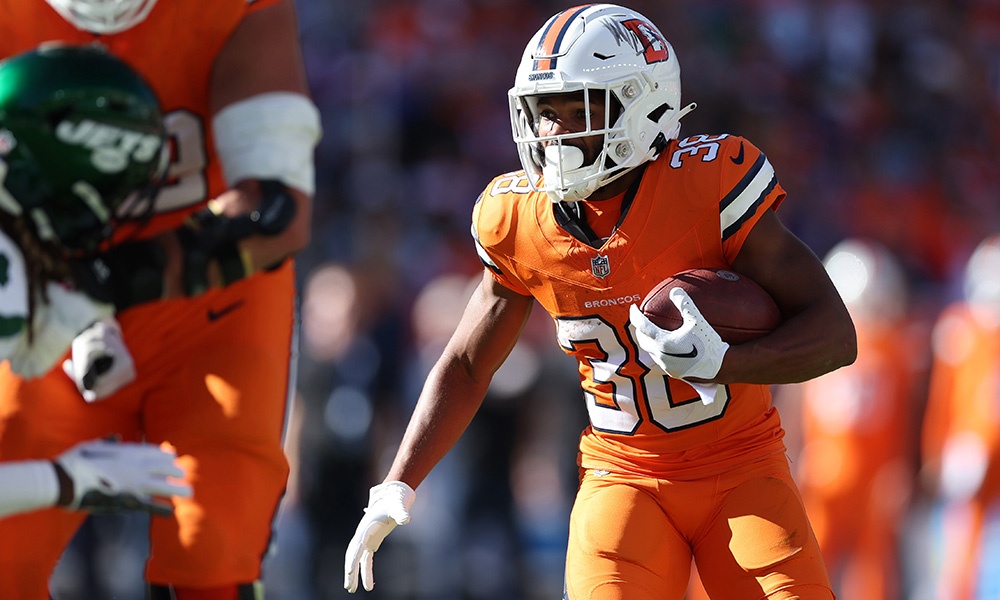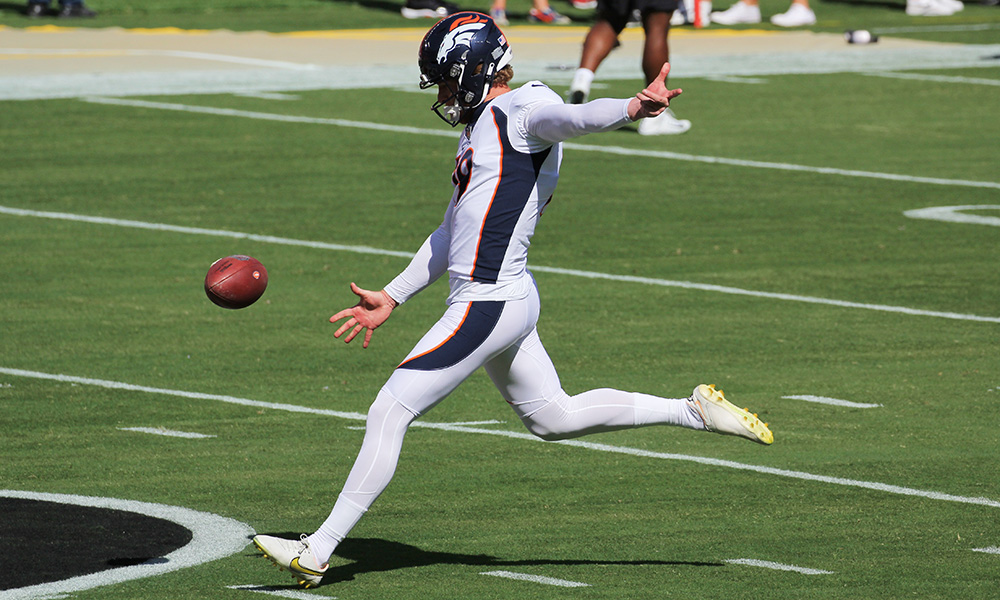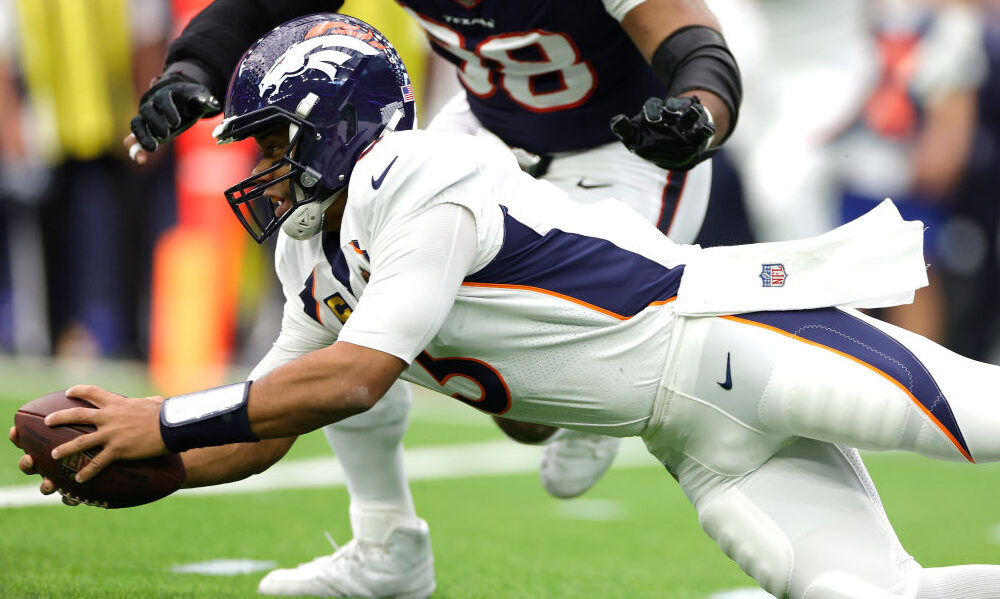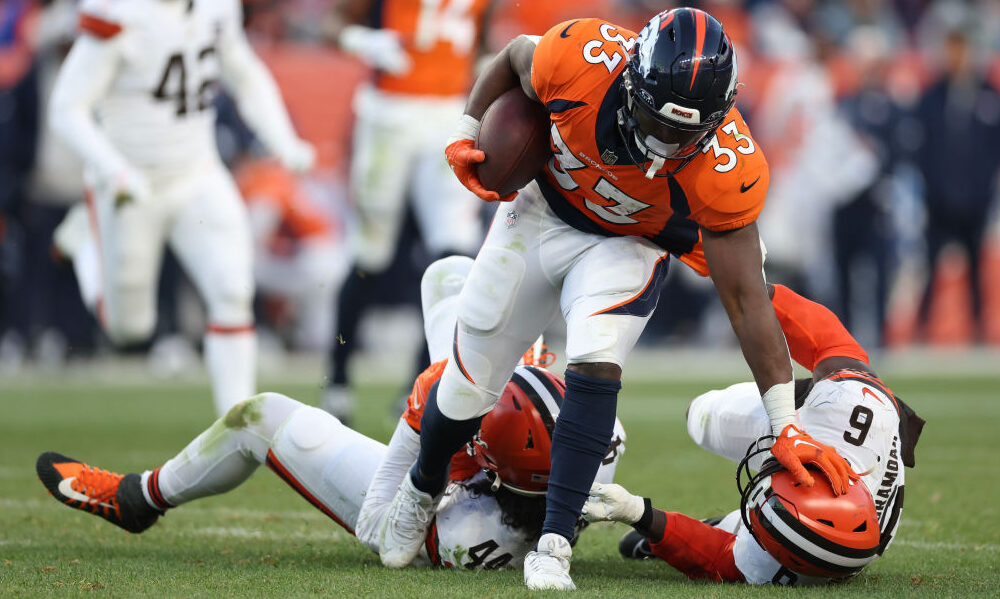The Broncos pass defense absorbed a punch unlike any other in team history last week
Dec 19, 2023, 8:14 PM | Updated: Dec 20, 2023, 2:03 pm
The Broncos defense found itself sliced and diced by Lions quarterback Jared Goff last Saturday. And by the end of the defeat, Denver found itself on the wrong end of a stat line achieved just once this season before Denver’s 42-17 defeat.
Goff became just the second quarterback in the NFL this season to throw for at least 275 yards, three touchdowns and no interceptions while completing at least 70 percent of his passes. Making matters worse … it was the first such game against the Broncos in team history.
Between that and a season-long average of 5.2 yards per carry allowed that is on pace to be the worst in team annals, the defense found itself back in its early-season nightmare.
The failure to stop the run and the gaps against the pass were connected.
“[Goff] had success kind of in all areas,” Broncos coach Sean Payton said. “When you’re playing a lot of down-safety defense — which we were — and Detroit Is running the ball, some of those cavities when you do decide to throw and you pull up off a heavy play-action on first or second down, you’re going to find cavities attacking what basically is a run front in coverage.
“I think it’s a byproduct of their ability to run the ball consistently and then you get into some of your longer protections that block people up. So, if you give him time in the pocket, he’s going to find those windows.”
And Goff did … to devastating effect. And the Broncos didn’t have enough punch to keep up with him.
OFFENSE
OVERALL GRADE: C-minus
By the time the Broncos established some momentum, it was too little, too late. Denver didn’t run a single offensive snap in the second half without having a three-score deficit.
PASSING OFFENSE: C
If the Broncos could have called this game after the first offensive snap, they would have been staring at an A-plus. Everything about the 40-yard pass from Russell Wilson to Jerry Jeudy was crisp, from the play-action fake to Jaleel McLaughlin to the in-stride throw to Jeudy’s separation. But in the quarters that followed, Wilson found himself under duress as the Broncos struggled to contain the Lions’ myriad blitzes. The Broncos allowed 14 total pressures; according to Pro Football Focus’ data, 10 of those were the responsibility of the Broncos’ pass-protection scheme.
It wasn’t Wilson’s worst game of the season by any stretch, although he compiled a passer rating of just 64.2 in the first half. All of his snaps after halftime came with the Broncos trailing by at least three scores.
RUSHING OFFENSE: C-minus
Holes were few and far between for much of the defeat, but Javonte Williams continues to struggle with explosiveness and burst. He hasn’t averaged at least 4.0 yards per carry in the last seven games, leading to a question of Payton about whether the Broncos would re-examine how they distribute their repetitions at running back.
“We’ll look at those spreads, and we’ll look at those calls,” Payton said. “We didn’t run it as well as I thought we would, and quite honestly, I think that’s an area. Cleveland was the last game where I felt like we ran it really well.
“I think in this next three-game stretch, we’re going to have to run it better than we have.”
And that could mean changing up who has the most carries.
DEFENSE
OVERALL GRADE: D
Three-straight stops to open the game because five-straight touchdown drives at the Broncos’ expense. Defensive coordinator Vance Joseph noted that the Lions had more skill-position speed than any opposing offense on Denver’s slate since Miami in Week 3 — and that speed killed the Broncos.
PASSING DEFENSE: D
Denver’s pass rush generate pressure — 11 total pressures, per Pro Football Focus’ data — but little of it rattled Goff, who found plenty of time and space to operate. Even Pat Surtain II wasn’t immune from getting diced up on the back end; Goff threw in his direction twice for completions. But the trouble spots were in the center of the field, where Alex Singleton, Josey Jewell and P.J. Locke all struggled to keep pace with Detroit’s pass-catching targets. It was a night that looked more like September than the Broncos’ form since the season’s first quarter.
RUSHING DEFENSE: D
It was mentioned last week that this area remained a “relative soft spot,” because even in victory over the Los Angeles Chargers, the Broncos still conceded 5.1 yards per carry to running back Austin Ekeler. That was a mere prelude to what transpired in Detroit. By targeting D.J. Jones with double teams, the Lions attacked the most disruptive element of the Broncos’ up-front run defense.
The tackling on the back end was sub-par; the Broncos had double-digit missed tackles on run plays alone Saturday.
SPECIAL TEAMS
OVERALL GRADE: B-plus
This was by far the most effective phase of the Broncos’ work on Saturday. The punt and placekicking units operated cleanly, and without major issues. Detroit opted to return one of Wil Lutz’s kickoffs out of the end zone, but that resulted only in a drive-start position at the Lions 25-yard line — exactly where they would have been had a kneel down and touchback been the tactical choice. Denver got the better of the special-teams duel at Ford Field, but of course, won little else.






